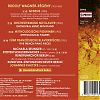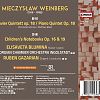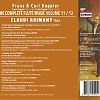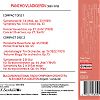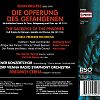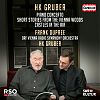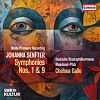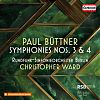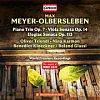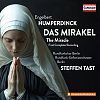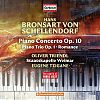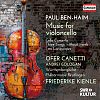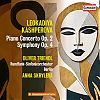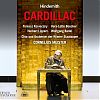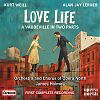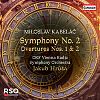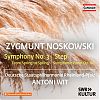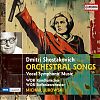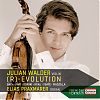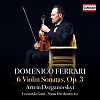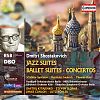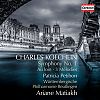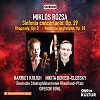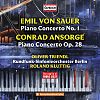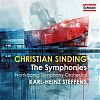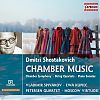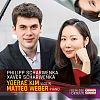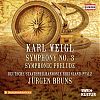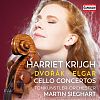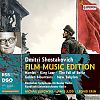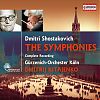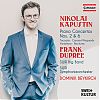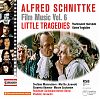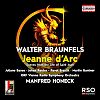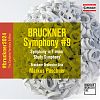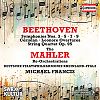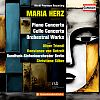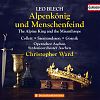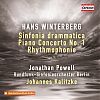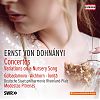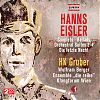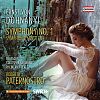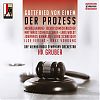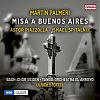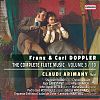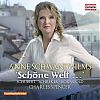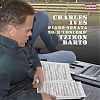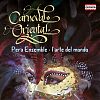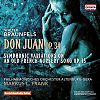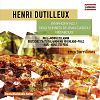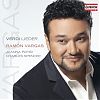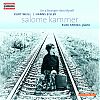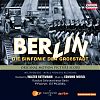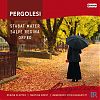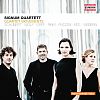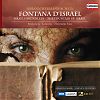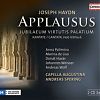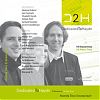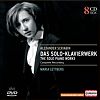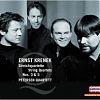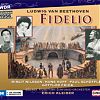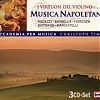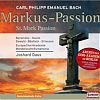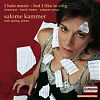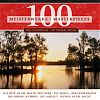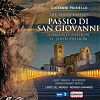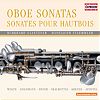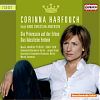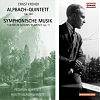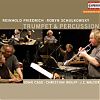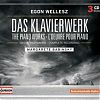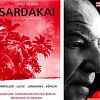cd

Rudolf Wagner-Régeny
SELINGER SCHLEIERMACHER RUNDFUNKCHOR BERLIN RUNDFUNK-SINFONIEORCHESTER BERLIN · JOHANNES KALITZKE
Youtube
Weitere Bilder

MIECZYSŁAW WEINBERG
ELISAVETA BLUMINA · GEORGIAN CHAMBER ORCHESTRA INGOLSTADT · RUBEN GAZARIAN
Five years after Shostakovich premiered his quintet to turbulent success in 1940, his new 24-years young friend Weinberg premiered one of his own. For the premiere on March 18th, the 27-year old Weinberg got the String Quartet of the Bolshoi and a 30-year old pianist, already famous then, by the name of Emil Gilels. The Quintet op.18 is one of the unequivocally great chamber pieces of that time and it is a superb entry-point into the world of Weinberg. As with any truly great masterpiece, a work like the Piano Quintet benefits and indeed demands many and diverging interpretations. This also includes different versions, such as this arrangement of the quintet for chamber ensemble. The idea is hardly far-fetched: Weinberg arranged several of his own works for chamber orchestra; his friend Shostakovich’s string quartets have popularly lent themselves to such arrangements. It suits the treatment naturally – and the orchestral version, therefore, gives us just one more way to discover and enjoy one of Weinberg’s ingenious gifts to his belated but finally eager public.
Hörprobe
Weitere Bilder

Franz & Carl Doppler Edition Vol. 11/12
Claudi Arimany, János Bálint, Aleksandra Miletic, flutes
The Doppler brothers played a dominant role in the K&K Monarchy’s musical life as composers, conductors, musicians and as orchestral soloists. They were on good terms with acknowledged artists of the era, such as Ferenc Liszt, Ferenc Erkel, or Jozsef Bajza.
This is the eleventh release in a set of 12 CDs comprising the Dopplers' complete music for flute(s), including various arrangements. Flautist Claudi Arimany spent decades researching this project, inspiring many famous musicians to become involved in its realisation.
Hörprobe
Weitere Bilder

Pancho Vladigerov Edition: Orchestral Works I
BULGARIAN NATIONAL RADIO SYMPHONY ORCHESTRA · ALEXANDER VLADIGEROV
From the diversity of Bulgarian musical culture Pancho Vladigerov stands out as undoubtedly the most important composer for the musical self-conception of modern Bulgaria. In the 1920s he worked as a conductor, pianist and composer in close association with Max Reinhardt at the Deutsches Theater Berlin. He also associated with many German-speaking writers, such as Stefan Zweig, Gerhart Hauptmann, Arthur Schnitzler and Hugo von Hofmannsthal as well as with many fellow composers of the time (including Bartók, Kodály, Strauss, Ravel, Glasunov, Hindemith, Schoenberg, Rachmaninov and Szymanowski). In this light, it is difficult to understand why the imaginative and colourful music by the sound wizard does not possess any appropriate status in European concert halls today. However, in his homeland he held a pre-eminent position up to the end of his life. Irrespective of the prevailing political conditions, he was shown the greatest respect by all sides and granted both personal and state recognition. With these recordings, produced in the 1070s in Bulgaria, Capriccio releases an 18CD Vladigerov-Edition to preserve this colourful music also for the next generations.
Hörprobe
Weitere Bilder

EGON WELLESZ
Wolfgang Koch Robert Brooks · WIENER KONZERTCHOR · ORF VIENNA RADIO SYMPHONY ORCHESTRA · FRIEDRICH CERHA
‘This West Indian tragedy has remained the sole dramatic work of a heroic world in pre-Columbian times that, after a flourishing heyday, was abruptly terminated by foreign violence.’ Egon Wellesz (1925)


